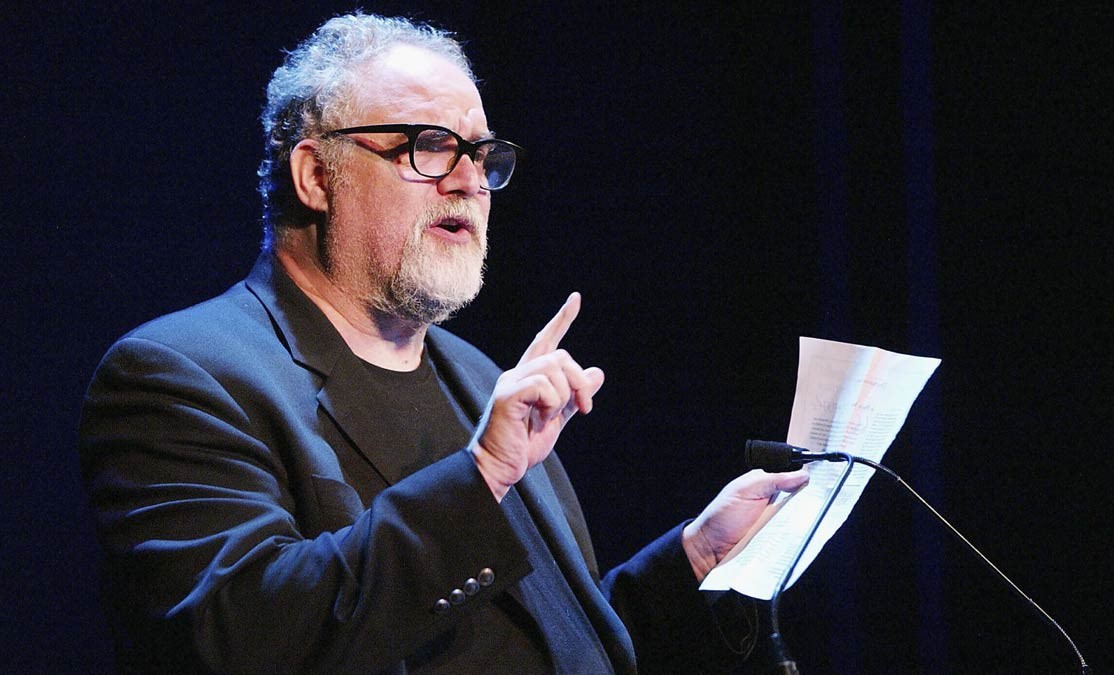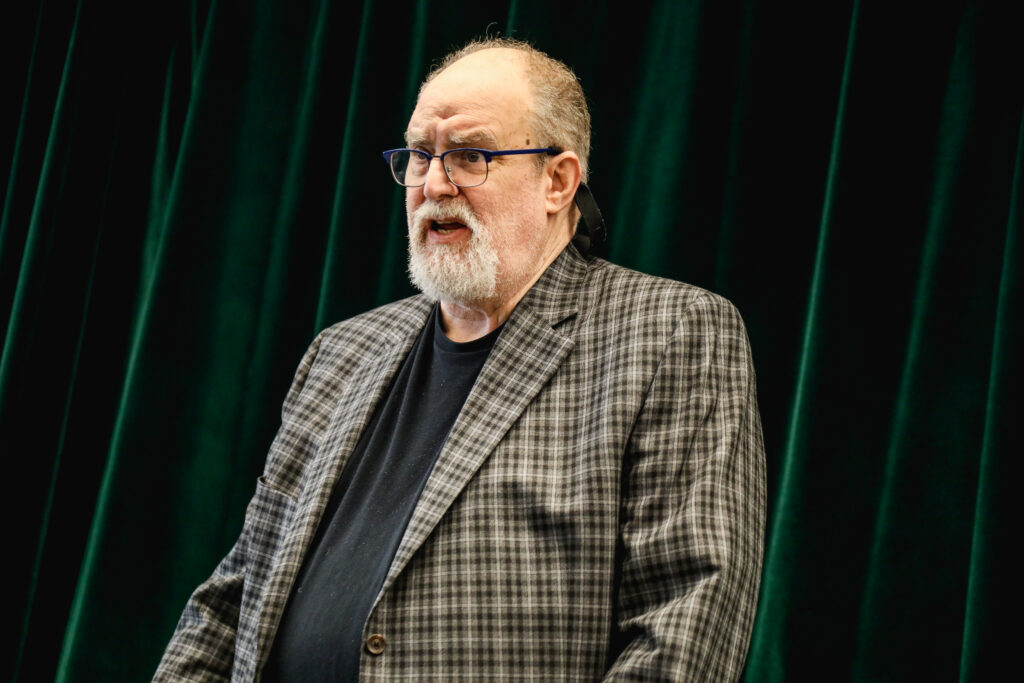
William Finn: A Life in Song and Storytelling
William Finn was an American composer and lyricist whose work left an indelible mark on contemporary musical theatre. Known for his deeply personal, witty, and emotionally charged musicals, Finn’s career spanned decades and encompassed themes ranging from love, illness, and Jewish identity to the absurdities of spelling bees and suburban life.
He is perhaps best remembered for Falsettos, the groundbreaking musical that won him two Tony Awards in 1992—for Best Original Score and Best Book of a Musical (with frequent collaborator James Lapine). His other acclaimed works include A New Brain (1998) and The 25th Annual Putnam County Spelling Bee (2005), among many others. Through his fearless exploration of autobiographical and socially relevant themes, Finn crafted musicals that were both uniquely his own and resonant with a broad audience.
Early Life and Education
William Alan Finn was born on February 28, 1952 in Natick, Massachusetts, a suburb of Boston, and raised in a Jewish household—a heritage that would inform much of his later work. He displayed musical talent from a young age, playing the piano by ear and writing songs as a child. He attended Natick High School and later matriculated at Williams College in Williamstown, Massachusetts, where he studied music and honed his compositional voice.
At Williams, Finn’s early works were nurtured under the guidance of faculty members like Gerald “Jerry” Greenberg, who recognized his potential. It was during this time that Finn began to develop his signature style—quirky, emotionally raw, often autobiographical storytelling paired with complex, expressive music.
Early Career and the Marvin Trilogy
William Finn’s breakthrough came with what would eventually become known as the “Marvin Trilogy”—a set of musicals centered around Marvin, a gay man navigating relationships, fatherhood, and self-identity in a changing cultural landscape. The first part, In Trousers (1979), premiered off-Broadway and introduced Marvin as a conflicted man reflecting on his sexuality and the women in his life.
March of the Falsettos (1981), the second installment, marked a turning point in Finn’s career. This one-act musical, created in collaboration with director James Lapine, deepened the emotional resonance of Marvin’s story. It also introduced key characters like Whizzer (Marvin’s lover), Trina (Marvin’s ex-wife), Jason (his son), and Mendel (the family psychiatrist). The show was lauded for its innovative structure, blending humor, pathos, and minimalist staging with Finn’s idiosyncratic and emotionally potent score.
Ten years later, Finn and Lapine completed the trilogy with Falsettoland (1990), set against the backdrop of the AIDS crisis. This installment added profound layers to the characters and concluded Marvin’s journey in a tragic, but deeply human, way.
In 1992, March of the Falsettos and Falsettoland were combined into Falsettos and presented on Broadway, earning Finn Tony Awards for both Score and Book. Falsettos was revolutionary in its unflinching portrayal of gay relationships, Jewish family life, and the looming specter of AIDS—all delivered with a blend of humor, heartache, and musical innovation that only Finn could provide.
A New Brain: Art and Illness
In 1992, shortly after the success of Falsettos, William Finn was diagnosed with arteriovenous malformation (AVM), a potentially fatal brain condition. He underwent life-saving surgery and made a full recovery, but the experience left a lasting impact. It also inspired his 1998 musical A New Brain, a semi-autobiographical work about a composer named Gordon Schwinn, who confronts mortality and the urge to create.
A New Brain, developed with James Lapine and first produced by Lincoln Center Theater, received critical acclaim for its raw honesty, dark humor, and soaring melodies. The musical explored the tension between artistic ambition and human vulnerability, themes that echoed Finn’s own near-death experience. Songs like “Heart and Music” and “I’d Rather Be Sailing” became emblematic of Finn’s ability to blend the mundane with the profound.
The show did not achieve the commercial heights of Falsettos, but it resonated deeply with audiences and critics, earning a devoted following. It also cemented Finn’s reputation as a composer unafraid to lay bare his personal struggles for the sake of art.
.
.
The 25th Annual Putnam County Spelling Bee: A Comic Turn
In 2005, William Finn enjoyed another major success with The 25th Annual Putnam County Spelling Bee, a musical comedy based on an improvisational play by Rebecca Feldman. With a book by Rachel Sheinkin and direction by James Lapine, the show premiered at Second Stage Theater before transferring to Broadway, where it became a surprise hit.
Unlike the emotionally heavy Falsettos and A New Brain, Spelling Bee was a light-hearted, often absurd comedy. However, Finn’s music still brought heart and depth to the story of quirky middle schoolers competing in a spelling competition. Each character was given a touching backstory, often revealed through heartfelt solo numbers, such as “My Friend, the Dictionary,” “The I Love You Song,” and “I Speak Six Languages.” The show’s improvisational elements and audience participation added a unique charm, and it earned the Tony Award for Best Book of a Musical.
Spelling Bee introduced Finn’s work to a broader, younger audience and proved that his musical voice could thrive in comedic territory as well as in drama.
Other Works and Contributions
William Finn’s body of work also includes several other pieces that, while perhaps not as widely known, contributed significantly to the American musical theatre canon. Elegies: A Song Cycle (2003) is a series of songs reflecting on loss, memory, and the people who shape our lives. Written after the death of friends and in response to 9/11, Elegies is poignant and intimate, highlighting Finn’s gift for turning grief into art.
He also wrote Little Miss Sunshine, a musical adaptation of the 2006 film, again collaborating with James Lapine. Premiering in 2011 at La Jolla Playhouse and later opening off-Broadway in 2013, the show received mixed reviews but showcased Finn’s continued interest in exploring unconventional family dynamics through music.
William Finn was a devoted teacher and mentor. He served as a faculty member at the NYU Tisch School of the Arts and was involved in numerous developmental workshops for new musicals. His commitment to nurturing young artists and his belief in the transformative power of storytelling through music made him a beloved figure in the theatre community.
Style and Musical Legacy
William Finn’s musical style defies easy categorization. His compositions are known for their expressive vocal lines, rich harmonies, and irregular phrase structures that mirror the cadence of natural speech. Lyrically, he had a gift for combining razor-sharp wit with vulnerability, often packing emotional depth into deceptively simple turns of phrase.
A hallmark of Finn’s work is its honesty—whether writing about sexuality, illness, family, or childhood, he never shied away from emotional complexity. His characters are flawed, funny, and ultimately human. He was also one of the first mainstream composers to foreground LGBTQ+ narratives in a way that was both celebratory and nuanced, paving the way for future generations of queer artists in theatre.
William Finn’s collaborations with James Lapine were especially fruitful, resulting in works that balanced conceptual sophistication with emotional accessibility. Together, they challenged the conventions of musical theatre structure and content, particularly with Falsettos, which remains a touchstone for innovation in the genre.
.

.
Personal Life and Final Years
William Finn remained active in the theatre world until his passing in 2025. He continued to compose, mentor, and champion new voices. His own experiences with illness and recovery made him a vocal advocate for artists dealing with health challenges, and his warmth and eccentric humor made him a cherished presence in every room he entered.
Despite his accolades, Finn often flew under the radar compared to more commercially prominent composers. Yet among theatre insiders and devoted fans, he was revered as a singular talent—an artist who wrote from the heart, unafraid to explore the messy realities of life.
William Finn died from pulmonary fibrosis at a hospital in Bennington, Vermont, on April 7, 2025, at the age of 73.
His death marked the end of an era. Tributes poured in from Broadway and beyond, celebrating a career that touched countless lives. Productions of Falsettos, A New Brain, and Spelling Bee saw renewed interest, and many young composers cited Finn as a key influence.
Legacy and Influence
William Finn’s legacy lives on not only in his songs but in the way he changed the language of musical theatre. His honest portrayals of love, illness, identity, and absurdity resonated with audiences across generations. His courage in writing openly about gay life and chronic illness helped pave the way for more inclusive storytelling on stage.
Finn’s work is a reminder that musicals can be more than spectacle—they can be confessions, love letters, elegies, and affirmations of life. His music invites us to laugh at our pain, to find beauty in the everyday, and to sing even when words fail.
In the landscape of American theatre, William Finn’s voice will echo for decades to come—vibrant, irreverent, tender, and unmistakably his own.
Check out William Finn on Amazon by clicking here.
If you found this interesting please share it with your friends and family, and check out some of our other articles on Musicians who Died in 2025.
.

